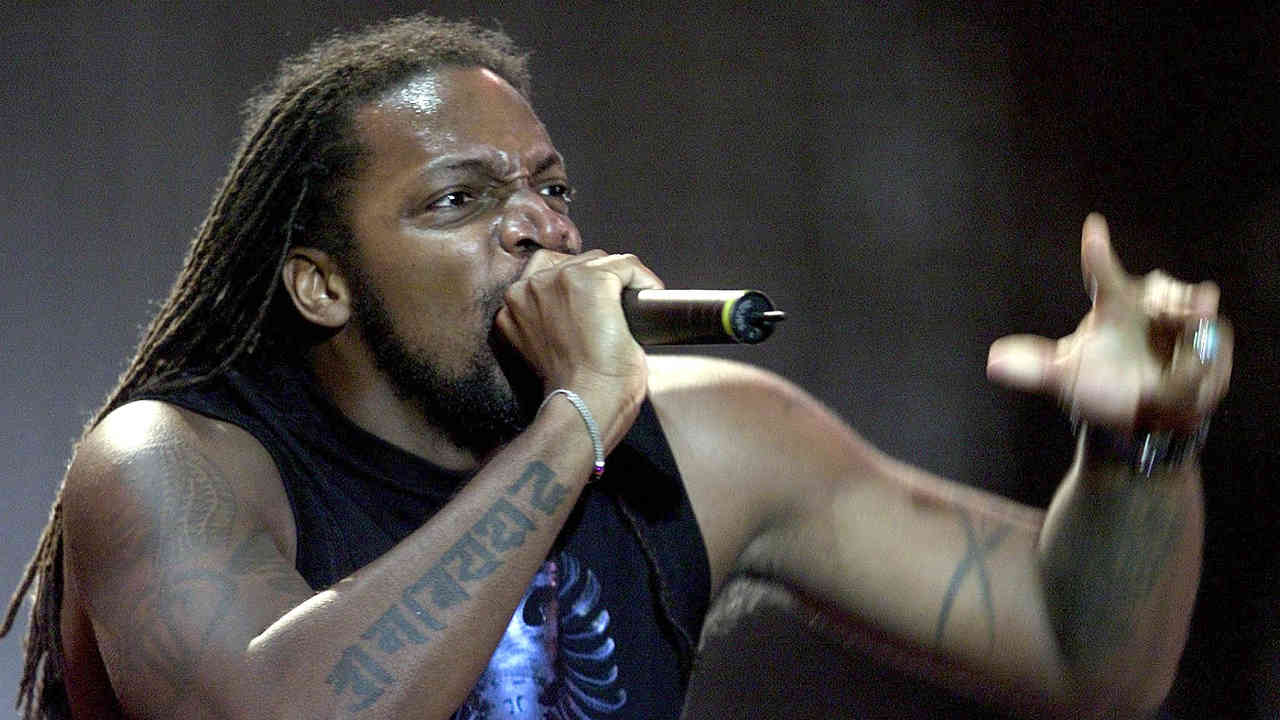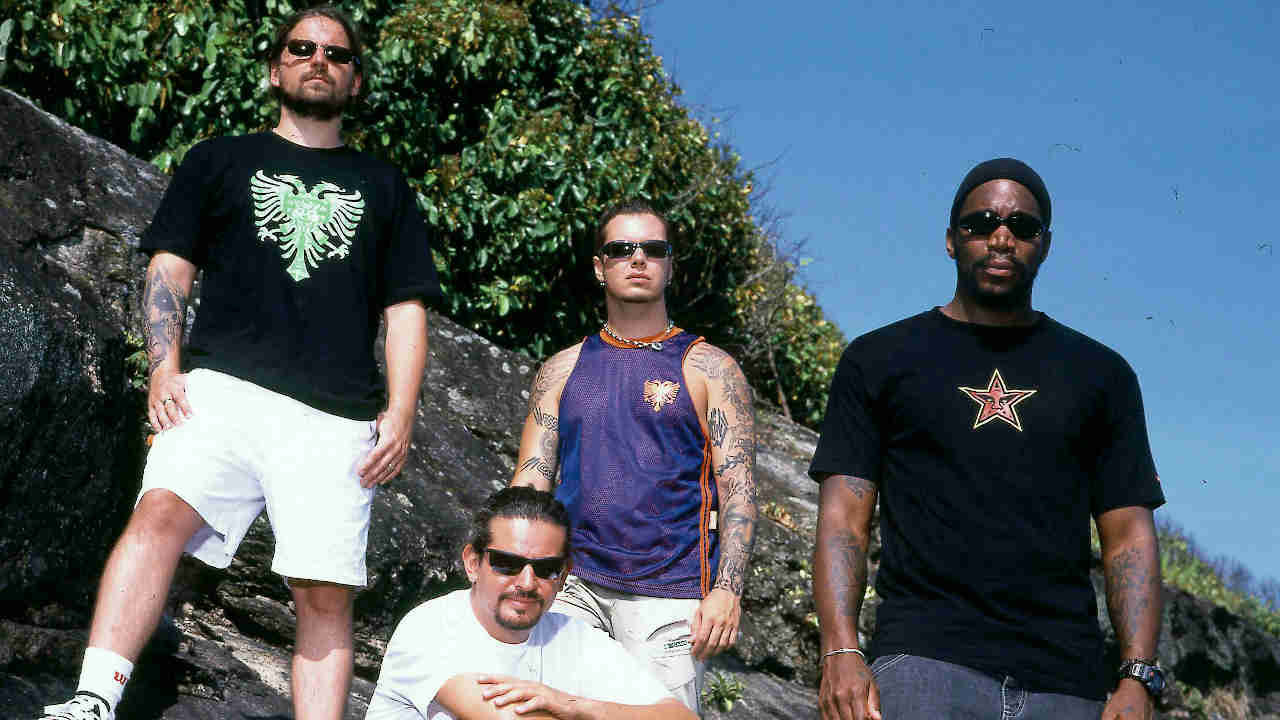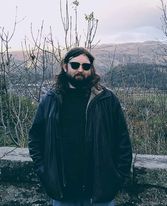Over 13 years Sepultura had grown from a ragtag group from the backwaters of Brazil into the first true global metal sensation. But January 1, 1997 marked the start of the most critical year in their history. Just two weeks previously the band played to a sold-out Brixton Academy; a landmark show that was later released by Roadrunner Records in 2002 as Under A Pale Grey Sky – one of metal’s greatest live albums and the sound of a band very much at the top of their game. Unfortunately, it was also the sound of a band that had very much reached breaking point, founding member Max Cavalera vacating the vocalist spot after 11 years. An enormous question loomed: who could possibly bring the gravitas and presence a band like Sepultura so clearly demanded? A New York City bouncer, naturally.
- Sepultura's Derrick Green: 10 albums that changed my life
- The Story Behind The Song: Bring The Noise by Anthrax and Public Enemy
- Our pick of the best Black Friday wireless headphones deals
- Grow your collection with the best Black Friday vinyl deals
Derrick Green was born in Cleveland, Ohio and had moved to New York after the disbandment of Outface, a melodic- hardcore band he joined in 1988 aged just 15. In New York, Derrick formed two similarly hardcore-flavoured bands – the short-lived Overfiend and Alpha Jerk. But Derrick’s evenings were seldom spent in the city’s many dive-bars and venues; instead he was outside, working the door at a bar across the street from his home.
“I lived in the same building as Iggy Pop so I’d often see him,” Derrick says. “He’d come into the bar regularly because he was friends with the owner. There were a lot of incredible people who’d come in for that reason; it wasn’t uncommon to see Dee Dee Ramone or [director] Abel Ferrara just hanging out.”
Around this time Sepultura had begun the recruitment process, creating a tape for new singers to demonstrate their prowess. It was an instrumental version of the song Choke – a song that would ultimately become the first single for the new Sepultura. The band wanted to see what prospective vocalists could bring to the table.
“I actually knew other people who auditioned,” Derrick says. “My neighbour Jorge [Rosado] of Merauder went down to Brazil and auditioned for them, but ended up coming back because things hadn’t clicked. Before him, there was also Davide [Gentile] of the band Orange 9mm who auditioned in San Diego. He was a fanatical Sepultura fan and could even play some of the old songs, but ultimately he decided it was all a bit too overwhelming. Davide was a friend and he helped me prepare; together we made a demo in his studio.”

Although largely an unknown at the time, Derrick’s demo ultimately won out, even beating more established names like Testament’s Chuck Billy and Phil Demmel of Vio-lence. “I didn’t even know those guys had auditioned until way after I joined!” Derrick says. “I was just all about finding ways to represent myself, because I didn’t want to just repeat what they’d done in the past. As luck would have it, that’s what the band wanted too.”
Invited to Brazil to try out for the band by drummer Iggor Cavalera, Derrick was on a plane within a week, having frantically learned about the continent by renting out as many books from the library as he could.
“It was pre-internet!” he laughs. “Our first week there wasn’t even about the music – it was about getting to know the guys. Going to a football game was the most intense experience – the sheer camaraderie with thousands of people who have this passion, so much that the concrete stadiums would shake with people stomping. You hear about these things all the time, but to experience it was totally different.”
The following week the band got down to business, hitting the studio to properly try out Derrick in the band dynamic. “They played a few new songs and I had to just make up some things on the spot which was horrible” he groans. “I was so intimidated; I hadn’t realised how massive the band were – people would recognise them on the street all the time. But I was hanging out with Paulo [Jr., Seps’ bassist] and he said, ‘This is your moment, you’ve got to come through.’”
While Choke is the song that got Derrick in the door for Sepultura, it was a cover of Bad Brains’ Gene Machine/Don’t Bother Me [released as the B-side to Choke] that helped put everything in its right place. “That song got me closer to the band because it was something familiar,” Derrick says. “Seeing Bad Brains live had changed my life and it was a band we all had in common. After that, everything started to flow.”
A month after returning from Brazil, Derrick was officially invited to join the band. But while he and the band were excited to start the next stage of their lives, some weren’t so invested in the band’s continued existence. “It was a strange time,” he says with a sigh. “We didn’t have a manager and the base of the band had fallen out with the split. We ended up going with Todd Singerman who managed Motörhead. He helped tremendously, because there were a lot of people who turned their backs and decided we were done. I didn’t understand; we had a deal for three more records, so I couldn’t figure why they didn’t want to support us and keep things going. Some of the people there had wanted somebody who looked like the old singer, sounded like him – like it was too much work to try and promote something different to what the band had been.”
Faced with apathy and even hostility from some sectors, the title of the band’s next record made perfect sense. “The record title was Against because it felt like everybody was against us – it was a fight for survival,” Derrick says. “Luckily we had some people in our corner that still supported us and we could do cool things like pulling in [Japanese Taiko drumming group] Kodo for pieces on Kamaitachi while I was still doing vocals.”
One of these ‘cool things’ also came about while the band were recording in LA. “Jason Newsted was a huge fan of the band, so he suggested coming to his house to write a song,” Derrick marvels. “He reasoned it would give us a chance to get all the negativity out and that song became Hatred Aside. It was great to find this positivity against the anger and he was especially sympathetic with me – he really understood what it meant to be the new guy in the band.”
If 1997 had been make-or-break for the band, 1998 was a chance for a second coming. An intensive promo- tour introduced the world to Derrick Green and in July he made his live debut at a few ‘secret’ shows (billed under ‘Troops Of Doom’) at the House of Blues in Hollywood, Club 369 in Fullerton and Brick by Brick in San Diego. “Those shows were to test the waters, but they went great,” Derrick says. “We had a lot of friends come out to support us, but even so everybody was real nervous because this was a whole new world.”
But the true test was the line-up’s ‘official’ debut back in Brazil. “Even before I joined the band, they were preparing for the show in São Paulo,” Derrick explains. “It was the big one, called ‘Barulho contra Fome’ (Noise Against Hunger). We played to over 30,000 people and had special guests like Mike Patton, Jason Newsted and Carlinhos Brown – the guy who had helped write Ratamahatta. It was a real moment for me – I’d been working my whole life to play shows like this.”
Against was released on October 6, 1998, with Choke itself released as the lead single on November 28. While the video (filmed at the São Paulo show) showed the band as imperious and world-beating as ever, a lack of promotion ultimately stalled the band’s return and blighted their momentum for years to come. Landing at #91 on the UK charts, it was the last Sepultura song to chart in the UK, but still represents a vital part of the band’s rebirth. “Ironically, Choke was the song that gave Sepultura a fresh breath of life,” Derrick says.
“Every time we play it, it brings back memories of joining the band and doing that demo. It’s a beautiful feeling to still be doing this now and know people hear the song and go, ‘I love this one!’ and singing along – a big change from those first years! I remember touring with Slayer and System Of A Down when it had just come out and the fans would be going wild for the old stuff, then cross their arms whenever a new song came on. Still, we had it better than System – those guys were on their first album and the fans would just be like ‘THESE GUYS WEAR MAKE-UP! BOOOOOOO!’ But difficult as it seemed at the time, I think we made good choices. We continued with what we believed and weren’t swayed by those negative outside forces.”

